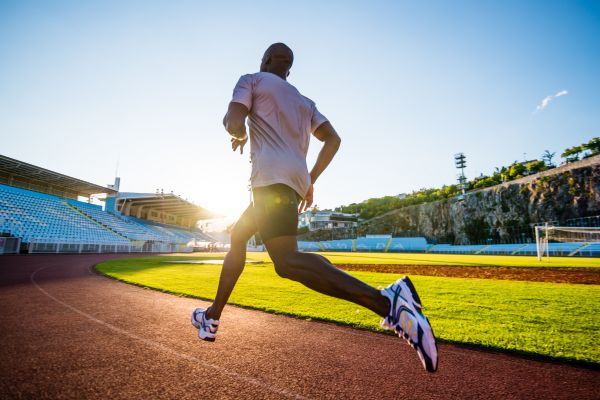When it comes to peak performance, let’s be real—raw talent and hours of training only get you so far. What really fuels those long practices, intense games, and recovery days is what you put on your plate. Sports nutrition for athletes isn’t just about counting calories or loading up on protein shakes; it’s about creating a balance that keeps your body strong, energized, and ready to perform when it matters most.
Why Sports Nutrition for Athletes Matters
Think of your body as a high-performance engine. You wouldn’t fill up a race car with the wrong fuel, right? The same goes for athletes. Sports nutrition for athletes provides the foundation for endurance, strength, focus, and recovery. Without it, even the most skilled athletes can burn out, hit walls during training, or struggle with injury.
The thing is, nutrition isn’t just about avoiding fatigue—it’s about unlocking full potential. The right balance of carbs, proteins, fats, vitamins, and hydration can mean the difference between being average and performing at your absolute best.
Carbohydrates: The Athlete’s Primary Fuel
Carbs often get a bad rap, but for athletes, they’re non-negotiable. Carbohydrates break down into glucose, which is stored in your muscles as glycogen. This glycogen is what your body taps into during intense workouts or competitions.
When glycogen stores run low, so does your energy—and that’s when fatigue hits. Including complex carbs like oats, sweet potatoes, brown rice, and whole grains keeps your energy stable, while simple carbs like fruit can give you a quick pre-game boost. You know that feeling when you “hit the wall” mid-workout? Yeah, that’s your body screaming for carbs.
Protein: Building and Repairing Muscle
Sports nutrition for athletes wouldn’t be complete without talking about protein. After long hours of training, your muscles develop tiny tears that need repairing. Protein is the building block that helps those muscles recover stronger than before.
Chicken, eggs, fish, tofu, beans, and lean beef are all solid options. But here’s the deal—you don’t have to pound shakes all day. Timing is what really matters. A protein-rich snack after training, like Greek yogurt with fruit or a turkey sandwich, can kickstart recovery right when your body needs it most.
Fats: The Misunderstood Energy Source
A lot of athletes shy away from fat, but let’s clear this up—healthy fats are essential. They provide long-term energy, help absorb fat-soluble vitamins, and support hormone production. Avocados, nuts, seeds, olive oil, and fatty fish like salmon should be part of your game plan.
Of course, it’s about balance. Too much heavy, greasy food can weigh you down. But the right fats? They’ll keep you fueled for the long haul, especially in endurance sports.
Hydration: The Unsung Hero of Performance
You can nail your carb, protein, and fat ratios, but if you’re not hydrated, performance plummets. Dehydration doesn’t just make you thirsty—it reduces coordination, focus, and endurance. And in extreme cases, it can be dangerous.
Water should always be your baseline, but for athletes sweating buckets in long events, electrolytes become crucial. Sodium, potassium, and magnesium lost through sweat need replacing, which is why sports drinks or coconut water can come in handy. Pro tip: if your urine is the color of lemonade, you’re good. If it looks like apple juice, drink up.
Timing Your Nutrition for Peak Performance
Sports nutrition for athletes isn’t just about what you eat—it’s also when you eat. Pre-training meals should be rich in carbs and moderate in protein, with minimal fat and fiber to avoid digestive issues. Think oatmeal with banana, or rice with grilled chicken.
Post-training, the goal is recovery. A mix of carbs and protein within 30–60 minutes helps replenish glycogen stores and repair muscles. A smoothie with whey protein, berries, and almond milk? Perfect. And throughout the day, balanced meals maintain steady energy levels.
Supplements: Do You Really Need Them?
Here’s the truth—most athletes don’t need supplements if their diet is dialed in. But in some cases, they can help. Protein powders are convenient when food isn’t available, creatine supports strength gains, and omega-3 supplements can reduce inflammation.
Still, supplements should fill gaps, not replace whole foods. No powder can outdo a well-balanced plate.
Recovery: The Often-Overlooked Part of Nutrition
Let’s not forget, recovery is where the magic happens. Sleep, hydration, and nutrient-rich meals all play a role in muscle repair and growth. Skimping on recovery nutrition can leave you feeling sore, sluggish, and more prone to injuries.
Simple things—like chocolate milk after a workout (yes, really), a balanced dinner, and staying hydrated before bed—can do wonders. Sometimes it’s not about fancy routines, but consistency.
The Mental Side of Sports Nutrition
Here’s something athletes often overlook: nutrition doesn’t just fuel the body, it fuels the mind. Stable blood sugar levels improve focus, reaction time, and decision-making. Ever felt “hangry” during practice? That’s your brain running on empty. Keeping a steady flow of nutrients ensures both your body and mind are game-ready.
Putting It All Together
At the end of the day, sports nutrition for athletes isn’t about strict rules or complicated formulas—it’s about listening to your body and fueling it with what it truly needs. Carbs for energy, protein for recovery, fats for balance, hydration for endurance, and timing to keep everything running smoothly.
The thing is, no two athletes are exactly the same. What works for one person may not work for another. The key is experimenting, staying consistent, and paying attention to how your body responds.
Final Thoughts
Sports nutrition for athletes isn’t some secret playbook—it’s common sense mixed with a bit of strategy. Eat real food, stay hydrated, fuel before workouts, recover afterward, and don’t fear the occasional treat. Because let’s be honest, no one ever lost a game over one slice of pizza.
So, whether you’re a weekend warrior or a serious competitor, your nutrition is just as important as your training plan. Nail both, and you’re not just playing the game—you’re changing it.

